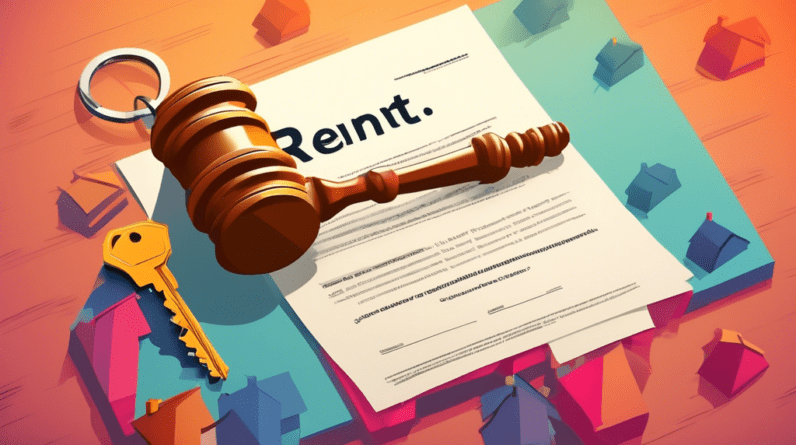
Negotiating Rent-to-Own Terms And Purchase Price: A Comprehensive Guide
A rent-to-own agreement, also known as a lease-option agreement, can be a viable pathway to homeownership for those who aren’t quite ready or able to qualify for a traditional mortgage. This arrangement allows prospective buyers to lease a property with the option to purchase it at a later date, often within a predetermined timeframe. However, the terms of a rent-to-own agreement are flexible and subject to negotiation between the tenant-buyer and the landlord-seller. This guide delves into the crucial aspects of negotiating rent-to-own terms and the purchase price, empowering you to secure a favorable deal.
Understanding the Key Elements of a Rent-to-Own Agreement
Before embarking on the negotiation process, it’s crucial to understand the key components of a rent-to-own agreement:
- Option Fee: This upfront, non-refundable fee secures your right to purchase the property at a later date. It’s typically a percentage of the agreed-upon purchase price.
- Rent Credits: A portion of your monthly rent payments may be allocated towards the eventual purchase price, providing you with equity accumulation over time.
- Purchase Price: The price at which you can buy the property at the end of the lease term is typically agreed upon upfront.
- Lease Term: The duration of the lease agreement, during which you have the option to purchase the property.
- Maintenance Responsibilities: The agreement should outline who is responsible for property maintenance and repairs during the lease term.
Negotiating the Purchase Price: Strategies for Success
Negotiating the purchase price is paramount in securing a favorable rent-to-own agreement. Here are some effective strategies to employ:
- Market Research: Thoroughly research comparable property values in the area. Utilize online real estate platforms, consult with a realtor, and analyze recent sales data to gain an accurate understanding of fair market value.
- Consider Future Appreciation: While the purchase price is locked in, anticipate potential property value appreciation over the lease term. Negotiate a price that aligns with the projected future value.
- Factor in Rent Credits: If a portion of your rent payments will be credited towards the purchase price, take this into account during negotiations. Aim for a purchase price that reflects these accumulated credits.
- Assess the Seller’s Motivation: Understanding the seller’s motivation can provide negotiation leverage. For instance, a seller facing financial difficulties may be more willing to accept a lower purchase price in exchange for a guaranteed tenant-buyer.
- Present a Strong Case: When presenting your offer, highlight your financial stability, creditworthiness, and commitment to purchasing the property. A compelling case can strengthen your negotiating position.
Negotiating Favorable Rent-to-Own Terms
Beyond the purchase price, negotiating advantageous terms is crucial for a successful rent-to-own experience:
- Option Fee: Aim to negotiate a lower option fee, as this upfront cost can be substantial. Consider offering a larger option fee in exchange for a lower purchase price or more favorable rent credits.
- Rent Credits: Negotiate for a higher percentage of your rent payments to be allocated towards the purchase price. This allows you to build equity more quickly.
- Lease Term: Opt for a lease term that aligns with your financial timeline and anticipated readiness to purchase. A longer lease term can provide more time to improve your credit score or accumulate savings.
- Maintenance Responsibilities: Clearly define maintenance responsibilities in the agreement. Determine who will be responsible for repairs, property taxes, and homeowners insurance during the lease term.
- Early Purchase Option: Inquire about including an early purchase option, allowing you to buy the property before the end of the lease term if your financial situation permits.
Seeking Professional Guidance
Navigating the complexities of rent-to-own agreements can be daunting. Enlisting the expertise of professionals can safeguard your interests and enhance your negotiation prowess:
- Real Estate Agent: A buyer’s agent experienced in rent-to-own transactions can provide invaluable guidance, market insights, and negotiation support.
- Real Estate Attorney: Consult with a real estate attorney to review the agreement thoroughly, ensure its legality, and protect your rights as a tenant-buyer.
Protecting Your Interests: Essential Considerations
Before signing a rent-to-own agreement, consider these essential factors to protect your interests:
- Property Inspection: Conduct a professional home inspection to identify any existing or potential maintenance issues. This can prevent costly surprises down the line.
- Contingency Clauses: Include contingency clauses in the agreement, such as financing contingencies that allow you to back out of the deal if you cannot secure a mortgage when the lease term ends.
- Clear Communication: Maintain open and transparent communication with the seller throughout the process. Address any concerns or questions promptly to avoid misunderstandings.
Alternatives to Rent-to-Own: Exploring Other Options
While rent-to-own can be a viable option, consider these alternatives:
- Traditional Mortgage: If you’re close to meeting mortgage qualification requirements, explore traditional mortgage options with various lenders.
- Lease with an Option to Purchase: This agreement grants you the option, but not the obligation, to purchase the property at a predetermined price within a specific timeframe.
- Seller Financing: In seller financing arrangements, the seller acts as the lender, potentially offering more flexible terms than traditional mortgages.
Conclusion
Negotiating rent-to-own terms and the purchase price requires careful consideration, market knowledge, and a strategic approach. By understanding the key elements, employing effective negotiation strategies, seeking professional guidance, and safeguarding your interests, you can increase your chances of securing a favorable deal that paves the way for successful homeownership. Remember, thorough research, clear communication, and a willingness to compromise are essential for navigating this unique real estate transaction.







